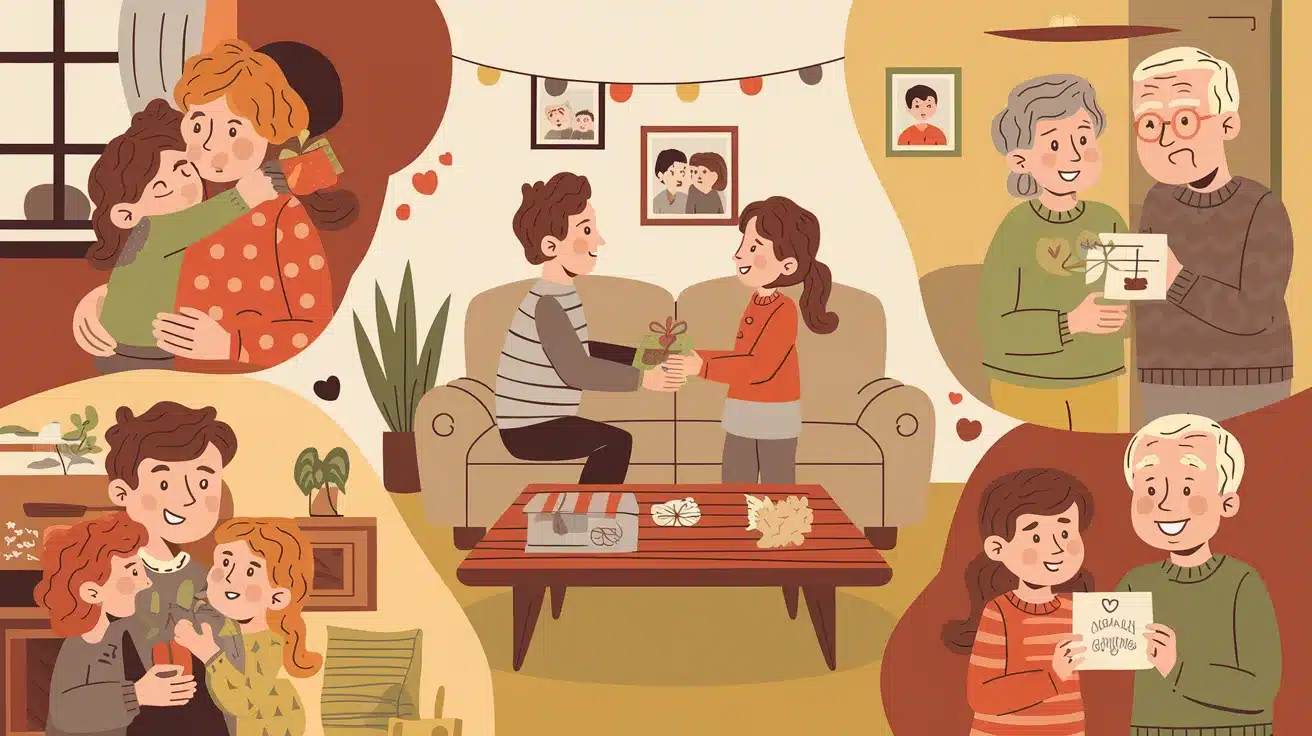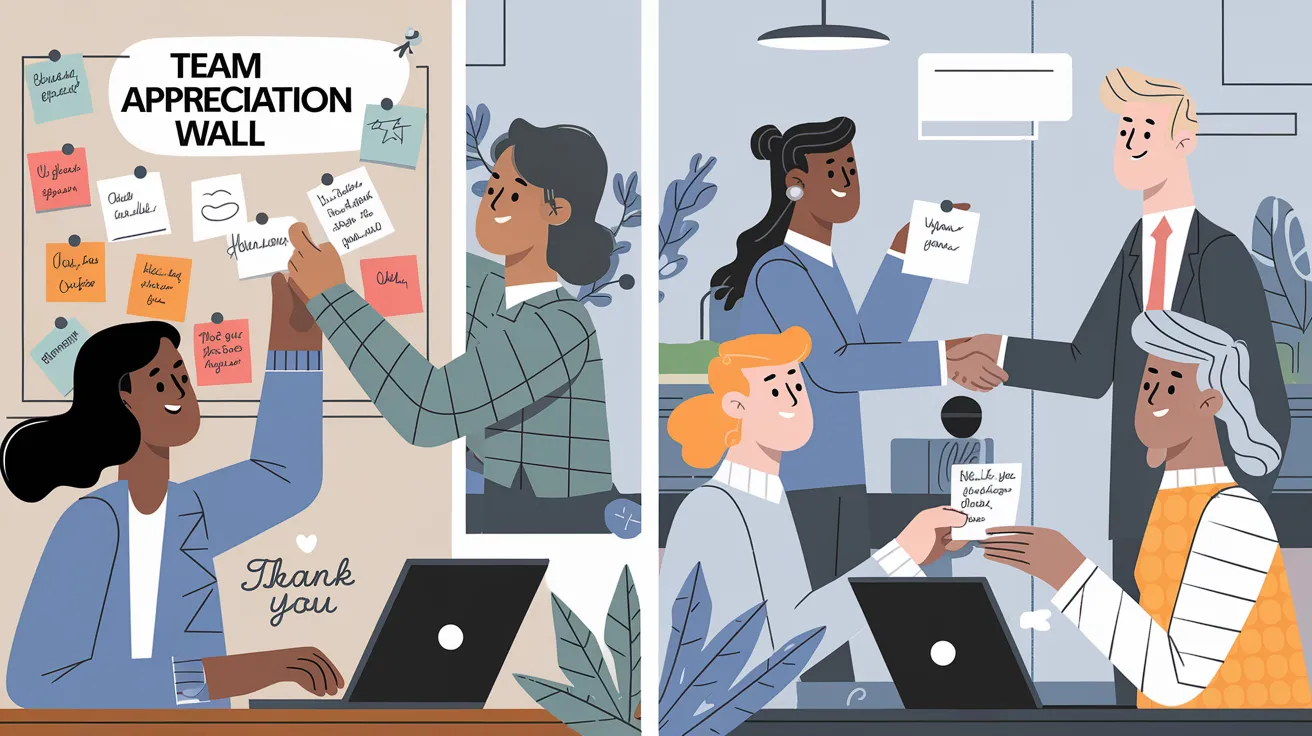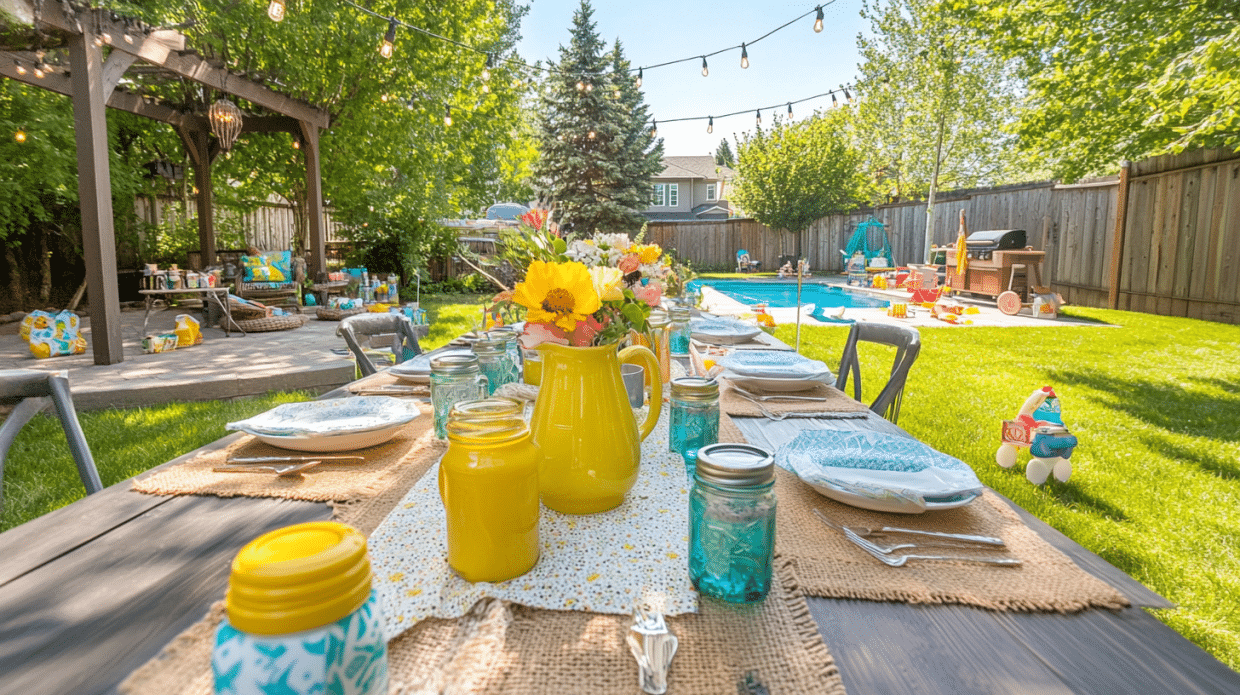Do you ever wonder how to make someone feel appreciated? Maybe you said “thank you” to someone, but they just smiled and shrugged. It didn’t seem like it meant much to them.
That’s because real appreciation requires more than words. It has to feel real and personal.
Many people want to show they care, but they’re not sure how to do it right. This guide will show you easy ways to make your words and actions really matter.
You’ll learn how to make different people in your life, like your partner, a friend, or a coworker, feel truly valued. And you’ll see how showing thanks can also help you feel more connected, calm, and happy.
These are things you can start doing today. And they can help turn small moments into something meaningful.
How to Make Someone Feel Appreciated
Making someone feel appreciated isn’t just about saying “thanks.” It’s about showing them they matter through words, actions, and time.
Small, honest gestures can go a long way in making people feel seen, heard, and truly valued.
1. Be Specific and Sincere
Have you ever noticed how a vague “thanks” feels hollow compared to detailed gratitude? When someone goes above and beyond, generic appreciation falls short.
Instead, name exactly what they did that impressed you. Explain how their actions positively affected your day, project, or life.
For example, rather than “Thanks for your help,” try “Your quick response to my email yesterday saved me hours of research and helped me meet my deadline.
I especially appreciated how you included those extra resources I wasn’t aware of.” This specificity shows you truly noticed their effort and aren’t just being polite.
2. Make It Personal
The difference between forgettable appreciation and meaningful recognition often lies in personalization.
When you highlight someone’s unique strengths or character traits, you show that you see them as individuals, not just as functions.
Instead of “Thanks for your work,” try “Your patience and attention to detail made this project successful. The way you carefully considered every possibility shows real commitment.”
This approach validates not just what they did but who they are. Remember key moments when they supported you and reference these specifically; these memories demonstrate your authentic appreciation.
3. Give Without Expecting
A surprising gift on an ordinary Tuesday speaks volumes more than expected holiday presents. Small, thoughtful items that reflect someone’s interests show you pay attention to who they are.
The morning coffee delivered during a stressful week, homemade cookies that include their favorite ingredients, or taking on a task they dislike demonstrates care through action.
These gestures don’t need to be expensive; a handmade card or a playlist curated just for them can create a lasting impact.
The key is thinking about what would make them feel valued specifically, not what would impress others.
4. Say It Clearly
“I’m grateful for you” – four simple words that can transform someone’s day. Direct appreciation leaves no room for misinterpretation and creates an immediate connection.
Phrases like “I noticed what you did and it mattered to me” or “Your contribution made a real difference” explicitly communicate value.
Many people deflect compliments or downplay their contributions—clear statements of appreciation cut through this modesty.
Practice saying these phrases aloud until they feel natural. The slight discomfort you might feel expressing direct gratitude pales compared to the positive impact of your words.
5. Surprise Appreciation
The text message that arrives when they least expect it can brighten even the darkest day. Surprise expressions of gratitude stand out precisely because they’re not prompted by obvious occasions or social obligation.
Send a quick voice message on a random Wednesday telling someone how much you value them. Drop a thank-you card in the mail for no special reason.
These unexpected moments of recognition often mean more than grand gestures on birthdays or holidays because they demonstrate that your appreciation isn’t calendar-dependent but consistently present in your thoughts.
6. Praise Them to Others
Hearing that someone spoke highly of you when you weren’t present creates a special kind of validation. Commending someone’s qualities or actions to others demonstrates sincerity beyond social politeness.
During meetings, acknowledge team members’ contributions by name. When speaking with family members, mention how much you value your partner’s specific qualities.
These third-party compliments often carry extra weight because they show your appreciation extends beyond direct interaction.
This approach benefits everyone: the recipient feels valued, listeners gain a positive perspective, and you foster a culture of recognition.
7. Spend Quality Time
In a world where everyone claims to be “busy,” dedicating undistracted time is among the most meaningful gifts. Put your phone away completely—not just face down, but out of sight.
Make eye contact. Ask questions that show you’re interested in their thoughts, and don’t just wait for your turn to speak. Plan activities based on their preferences, not yours.
These moments of focused attention communicate “you matter” more convincingly than words alone.
Quality time doesn’t require elaborate plans; simply sharing a coffee without checking notifications says, “Nothing is more important right now than being fully present with you.”
8. Write It Down
A handwritten note carries emotional weight that digital messages cannot match.
The physical evidence of your appreciation, such as your handwriting, the chosen card, and the fact that you took the time to mail it, creates a keepsake many people treasure for years.
Write specific things you value about the person. Leave sticky notes in unexpected places: their car dashboard, laptop, or lunch bag.
For longer relationships, consider keeping a dedicated journal where you regularly record moments of gratitude.
On special days, sharing all the kind things you’ve said over time shows the person how much they have always mattered to you.
It’s a strong and clear way to remind them that you’ve valued them all along.
9. Celebrate Their Wins
The moment someone shares good news is a critical opportunity for connection.
Responding with enthusiastic celebration rather than changing the subject or immediately sharing your news strengthens relationships significantly.
Ask questions about their achievement. Remember details to reference later. Mark even small victories: completed projects, personal goals reached, or everyday challenges overcome.
Create simple traditions for celebrations, like a special meal or symbolic toast. Your genuine excitement about their successes demonstrates that you care about their happiness and growth, not just what they contribute to your life.
10. Help Them Out
Actions truly speak louder than words when it comes to showing appreciation. Notice what’s causing stress in someone’s life and find practical ways to lighten their load.
Fill their car with gas, prepare meals during busy weeks, or temporarily take over a responsibility without making them feel inadequate.
The key is addressing actual needs rather than what you assume would help. This requires attention and thoughtfulness.
Effective support often means doing ordinary things at extraordinary times, the everyday tasks that pile up during challenging periods.
These practical gestures communicate appreciation by showing you value their well-being.
11. Remember the Little Things
“You mentioned wanting to try that new coffee place downtown.” These words can stop someone in their tracks. You remembered something they said weeks ago in casual conversation.
This attentiveness creates a profound connection. When you reference a book they mentioned, recall how they take their coffee, or note their preference for window seats, you demonstrate that you truly listen.
Try keeping notes in your phone about important details people share. Follow up on stories they’ve told you: “How did that meeting go with the client you were worried about?”
Appreciation for Different Relationships
Different people need different kinds of appreciation. What works for a friend might not work for a partner or coworker.
Learning the right way to show thanks based on your relationship helps make your words and actions feel more personal.
Romantic Partners
Routine can silently erode even the strongest relationships. Create daily appreciation rituals: morning texts highlighting qualities you love, leaving notes in lunch bags, or saying, “I notice your effort.”
For meaningful gestures, consider experience gifts based on their interests rather than generic presents. Remember details they mention casually and incorporate these into thoughtful surprises.
Want to express your love in words? Read here: You Are My Everything Quotes to Send to Your Love
Friends
The friend who celebrates your promotion more enthusiastically than their own deserves equal support. Acknowledge their achievements, big and small.
True appreciation also means showing up consistently: answering late-night calls, remembering important dates without reminders, and listening fully.
Good friendship means celebrating their unique path, not just obvious milestones.
Family
Family appreciation often goes unexpressed because we assume they “just know.”
Break this pattern by explicitly thanking parents for specific sacrifices, acknowledging siblings’ unique contributions, and recognizing children’s efforts beyond achievements.
Different family members receive appreciation differently—some value verbal affirmation, while others respond to quality time or practical help.
Coworkers & Employees
The colleague who stays late deserves more than a quick “thanks.” Implement peer recognition programs where team members highlight others’ contributions.
Create appreciation walls for public notes. Personalize recognition for employees based on their work style—public praise for some, private acknowledgment for others.
Non-monetary appreciation includes flexible schedules or asking for input on decisions.
Mentors & Teachers
Behind every successful person stands someone who believed in them first. Thank your mentors by naming how their guidance shaped your path.
Please share examples of applying their lessons. Show appreciation by implementing their advice and reporting results. Write testimonials for their professional profiles.
The greatest thanks is demonstrating growth and passing along their wisdom to others.
Psychological Benefits of Showing Appreciation
Showing gratitude helps others and yourself. It boosts happiness, lowers stress, and builds stronger bonds.
Understanding how your brain reacts to thankfulness can help you use it more often to feel better and connect more deeply.
How it Boosts Happiness
- Saying thanks releases happy chemicals in the brain, like dopamine and serotonin.
- These help you feel good and focus on the positive.
- Writing three things you’re thankful for each day can lift your mood.
- Being appreciated makes others feel noticed, valued, and more joyful.
Reduces Stress and Builds Trust
- Gratitude slows your heart rate and lowers stress chemicals.
- It helps you feel calm and more in control.
- Saying thanks often eases anxiety and sadness.
- In relationships, appreciation makes people feel safe.
- When people feel valued, they trust more and open up more easily.
Dos and Don’ts of Appreciation
Avoid Generic Phrases
Skip empty compliments like “good job” or “thanks for everything.” These vague phrases feel hollow and forgettable.
Instead, mention specific actions: “I noticed how you stayed calm with that upset customer,” or “The extra research you added to slide 7 really strengthened our presentation.”
Specific appreciation shows you paid attention and truly valued their unique contribution.
Be Mindful of Tone and Timing
Public praise can embarrass some people, while others welcome it. Learn each person’s preference.
Choose moments when someone can fully receive your appreciation, not during stressful deadlines or personal difficulties.
Match your tone to the situation: formal in professional settings, warmer in personal relationships. Never use appreciation to soften criticism or manipulate someone into doing something for you.
Wrapping Up
Mastering how to make someone feel appreciated creates a positive cycle that strengthens all your relationships.
The methods we’ve shared, from specific praise to thoughtful gestures, require minimal effort yet make a significant impact.
Start with just one technique from this guide today, perhaps with someone whose contribution you’ve overlooked. Notice how both of you feel afterward.
What begins as conscious appreciation often becomes a natural habit that improves communication, builds trust, and creates happiness for everyone involved.
Which person in your life deserves more recognition right now? Think about it, and remember to appreciate that person.
Want more helpful advice like this? Check out our other relationship and self-growth blogs on our website.











